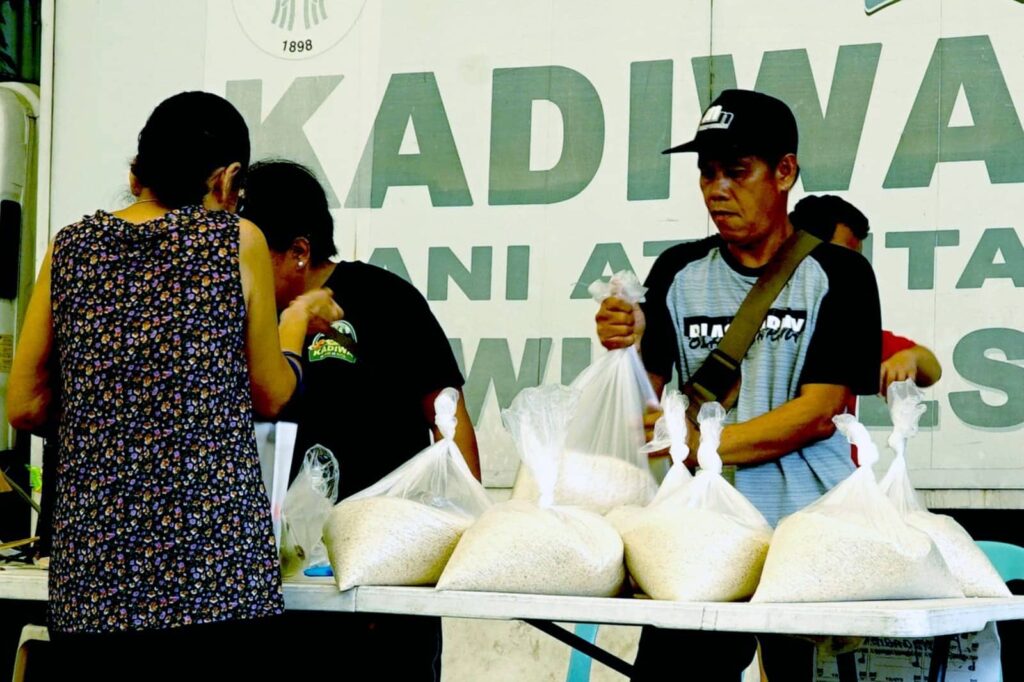
The Department of Agriculture sells rice at P29 per kilo at the Bureau of Animal and Industry’s Kadiwa in Visayas Avenue, Quezon City on Friday, July 19, 2024. (PNA)
MANILA, Philippines — President Ferdinand Marcos Jr. on Thursday said “concrete steps” are already underway to ensure that the decline in inflation rate will be experienced by all Filipinos.
Marcos, who also chairs the National Economic and Development Authority (Neda) board, made the pronouncement after the Philippine Statistics Authority reported that the country’s inflation eased to 3.3 percent in August.
READ: Philippine inflation eased to 3.3% in August
“Patuloy ang trabaho. Ipagpapatuloy natin ang pag-usad upang matiyak na makakamtan ng bawat Pilipino ang mas komportableng buhay — sa pamamagitan ng dekalidad na trabaho at murang bilihin,” he noted.
(The work continues. We will continue to make progress to ensure that every Filipino will have a more comfortable life — through quality jobs and cheap goods.)
Among these measures is the expansion of the Kadiwa centers which, he said, will help maintain the affordable price of commodities.
He also announced that government will begin the controlled rollout of the African Swine Fever vaccine so that there will be enough supply and a price hike will be avoided.
Furthermore, measures to stabilize transportation and fuel prices will be implemented.
“These are concrete steps we’re taking to make sure that the Bagong Pilipinas we promised is felt where it matters most — at home,” he said.
(These are concrete steps we’re taking to make sure that the Bagong Pilipinas we promised is felt where it matters most — at home.)
According to Marcos, apart from the inflation, the reduction of rice tariffs decreased rice inflation from 20.9 to 14.7 percent.
Meat inflation, on the other hand, was also brought down from 4.8 to 4 percent.

